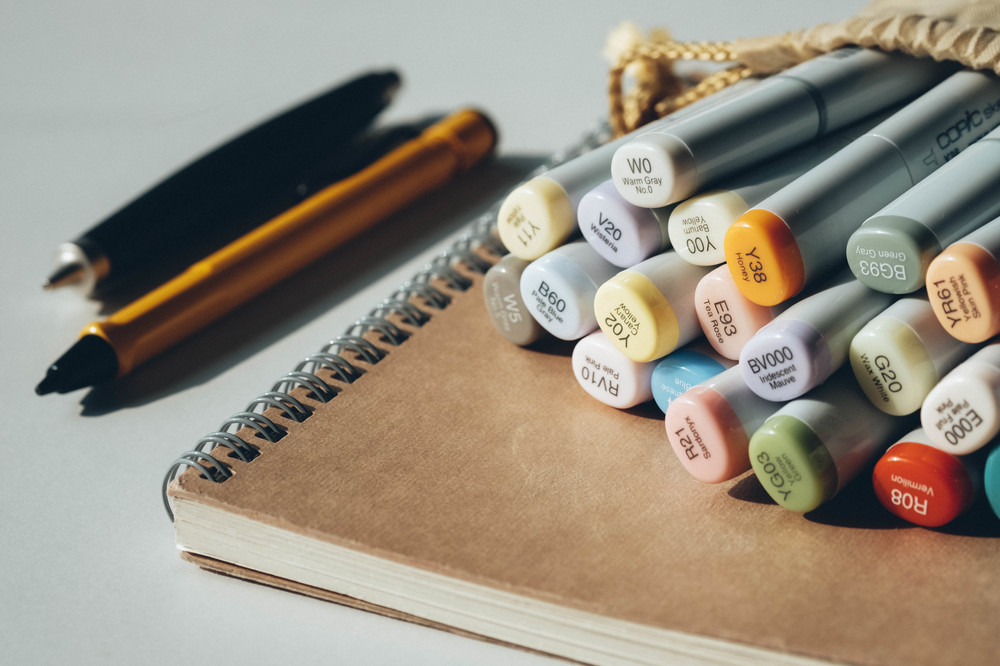Two ways to level up your analogue planner or bullet journal

Since rejoining the world of paper planning and journalling recently, I've been visiting Reddit and Instagram regularly to pick up inspiration.
It's always interesting to see how other people organise themselves and what personal quirks they've included in their own planning methods.
Unfortunately, it's also easy for ideas to spread throughout a burgeoning community like this without anyone asking if those ideas are any good in the first place. If something looks fun, or someone else says it works for them, why not try it too?
This "me too" approach has led to a couple of things I've noticed being used and recommended often in our community that actually work better with some tweaking.
I'm not trying to tell anyone they're wrong, and if you use these approaches that's entirely your choice. But I hope I can explain why using them a little differently will actually have a better, more lasting impact on your life.
Tracking habits
I'm big on tracking habits. I've been doing it digitally for several years now.
I did briefly try tracking habits on paper, but I prefer to stick with my trusty digital tracker, Momentum.
Regardless of how you track your habits, there's a strong temptation to track lots of them at once. I think this temptation can be even stronger when you're dedicating a whole page of your notebook to a habit tracker, since you want the page to be full of pretty colours showing off your achievements.
Unfortunately, this is an easy way to set yourself up for failure.
Many of us (myself included) fall into the trap of wanting to change everything about our lives at once. We want to start exercising, eat healthier, read more, and blog regularly—all starting today.
It's frustrating, but change doesn't happen like that.
Think about how long it took before your parents didn't have to nag you to brush your teeth every night. Just as the habits you already have were built slowly, you need to give new habits time to grow.
The best way to make sure you succeed in building a habit (that is, something you eventually do without thinking about it) is to focus on just one at a time.
Use all your energy and focus to get that one habit so strong you're truly doing it without thinking every day. And only then move on to building another habit.
If you try to do everything at once, you'll end up like so many others who have full notebook pages dedicated to habit trackers that are mostly empty. There's no need to feel bad about that! No one can take on that many habits at once.
It might not look as fancy, but try tracking—and focusing on—just one habit for a while. You'll be more likely to succeed, and that's what habit tracking should be about, in the end.
You can get more research and advice on building habits in my course, Productive Habits.
Gratitude journaling
Gratitude journaling has been popular for a while, and it makes sense that it has some overlap with the journaling and planning community. We like to spend quality, quiet time with our paper and pens, and many of us journal in various forms anyway.
The idea is to use your journal as a space to reflect on things you're grateful for. Many people choose to write down a few things every day as a way to regularly humble themselves and practise mindfulness. Some people even consider gratitude journaling a daily habit worth tracking.
But there's one small caveat that's been overlooked by most people who've picked up gratitude journaling.
According to psychology professor, and "the world's leading scientific expert on gratitude," Robert A. Emmons, gratitude journaling actually loses its effectiveness when done too often.
Emmons says "We adapt to positive events quickly, especially if we constantly focus on them."
So writing down something you're grateful for every single day is actually a bad idea. You're wearing away at the exercise's ability to give you a sense of mindfulness by doing it too often.
One study even found that writing in a gratitude journal just three times per week was too much. After six weeks, participants who journaled about gratitude three days per week didn't report any boost in happiness. Those who did the exercise just once per week, however, did find they were happier after six weeks.
So if you like to do a weekly review or reflection in your journal, or sit down to plan our your week every Sunday, try slotting in a few minutes for gratitude journaling then, rather than every day.
And if you're just starting out, Emmons offers more advice on keeping a gratitude journal.
As analogue fans, we love to experiment. We're always switching the way we do things and trying new approaches.
No matter what you choose to do in your planner or journal, remember that there are sometimes better options we just haven't come across yet. Being open to new ideas is one of the strengths of our community, and I hope it stays that way.